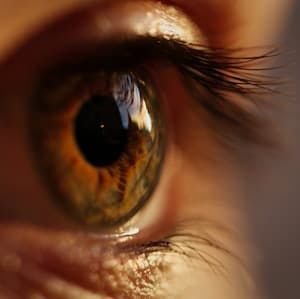Article
Fluorescein Angiography Does Not Worsen Renal Dysfunction in Diabetic Retinopathy
Author(s):
A prospective study on patients with DR and CKD found no significant effect on renal function shortly after performing fluorescein angiography.
Credit: Marc Schulte/Pexels

Fundus fluorescein angiography does not seem to deteriorate renal function in patients with diabetic retinopathy (DR) and chronic kidney disease (CKD), according to new research.1
The investigative team, led by Manouchehr Amini, MD, from the Nephrology Research Center at the Tehran University of Medical Sciences, found no significant effect on renal function shortly after performing fluorescein angiography and were able to obtain good-quality images with half of the recommended dosage.
Concomitant diabetic nephropathy is possible in patients with DR, leading to concern as to whether fluorescein usage can further deteriorate kidney function. However, is no consensus on renal side effects linked to fluorescein usage, despite studies attributing one to the other.2 Both the burden of cost and time on patients and providers, as well as referral for additional testing, may cause a delay in the diagnosis and treatment of DR.
“Nephrology consults and further evaluation for these groups of patients seem to be unnecessary,” Amini and colleagues wrote.1
The team looked to determine whether fluorescein can cause contrast-induced acute kidney injury (AKI) in diabetic patients with CKD who are candidates for fundus fluorescein angiography. The prospective study was performed in the retinal imaging section of Farabi Eye Hospital from January 2019 - January 2020. Patients with DR referred to the imaging section for fundus fluorescein angiography were evaluated 5 days prior for serum creatinine and urea levels.
Male patients with serum creatinine levels of ≥1.5 mg/dl and female patients with levels of ≥1.4 mg/dl were identified as having CKD and included in the analysis. The estimated glomerular filtration rate (eGFR) was calculated using the Chronic Kidney Disease Epidemiology Collaboration (CKD-EPI) equation and used for CKD grading. Investigators compared serum creatinine levels both before and after contrast administration, with an increase of ≥0.5 mg/dl (25%) from baseline considered as contrast-induced AKI.
The study included 42 patients, with a mean age of 58.1 years and 23 male (54.8%). In terms of CKD grading, 17 patients with identified with grade 3a or lower CKD, 12 patients with grade 3b, 11 with grade 4, and 2 with grade 5. Data showed the overall mean blood urea before and after angiography was 58.48 ± 26.7 and 57 ± 27.81 mg/dl, respectively (P = .475).
Further, the analysis showed the mean serum creatinine levels were 1.89 ± 1.04 and 1.87 ± 0.99 mg/dL as the pre-and post-angiography values (P = .993). Moreover, the mean eGFR before and after the test was 44.024 ± 23.5447 and 43.850 ± 21.8581 mL/min/1.73 m2 (P = .875). Investigators noted the differential changes in eGFR before and after FA in all stages of CKD was not significant.
Amini and colleagues indicated major limitations for the study included the relatively small number of patients, and the lack of categorization of patients according to their medication usage but noted that they did not believe it had any effect on the results.
“However, as overall we did not observe fluorescein injection causing any AKI, lack of such data might not be affecting the results,” investigators wrote.1
References
- Ebrahimiadib N, Hadavand Mirzaei S, Riazi-Esfahani H, Amini M. Renal Function following Fluorescein Angiography in Diabetic Patients with Chronic Kidney Disease. J Ophthalmic Vis Res. 2023;18(2):170-174. Published 2023 Apr 19. doi:10.18502/jovr.v18i2.13183
- Yun D, Kim DK, Lee JP, Kim YS, Oh S, Lim CS. Can sodium fluorescein cause contrast-induced nephropathy? Nephrol Dial Transplant 2021;36:819–825.





